Professional Courses
Industry-relevant training in Business, Technology, and Design
Categories
Interactive Games
Fun games to boost memory, math, typing, and English skills
Typing
Memory
Math
English Adventures
Knowledge
What Are CBSE Competency‑Based Questions and How to Answer Them?

CBSE competency‑based questions challenge you to think, apply knowledge, and solve problems in real contexts. These questions assess your higher-order skills instead of asking you to just recall facts using rote memorisation. In this detailed guide, you will learn what competency‑based questions are, why CBSE uses them, how to prepare, and how to answer them with confidence. We have included practice questions and expert tips. Plus, the guide explains how AllRounder.ai helps you prepare smartly for these important questions.
Understanding Competency‑Based Questions
CBSE competency‑based questions focus on testing real skills. They cover four main areas:
- Knowledge – Do you know the idea?
- Application – Can you use it in a new situation?
- Analysis – Can you break down information and understand it?
- Evaluation – Can you form an opinion based on evidence?
In short, these questions go beyond memorization. They demand deeper thinking and relevance to everyday life. In current CBSE exams, nearly half of all questions in Classes 10 and 12 follow this pattern. The central idea is to nurture critical thinkers and problem solvers.
Why CBSE Introduced CBQs
The move toward competency‑based questions is part of a larger shift influenced by NEP 2020. This educational shift aims to build critical thinking, creativity, and adaptability. Early results show notable improvement in student performance since CBQs were introduced. These questions help students understand and analyse, skills essential for real‑world success and competitive exams.
Types of CBSE Competency‑Based Questions
Here are the four main forms:
-
Case‑Based: A short paragraph is given, followed by questions that require understanding, analysis, and application. These are real‑world or science‑based.
-
Source‑Based / Integrated: Students interpret data, charts, maps, or passages. Answers require reading, analysis, and explanation.
-
Assertion‑Reasoning / MCQs: Each question includes a statement and a reason that must be linked correctly.
-
Open‑Ended / Higher‑Order Short Answer: These questions ask you to explain or evaluate. You need to apply your knowledge clearly.
In Class 10, around 50% of marks come from competency‑based questions. For Class 12, the marks distribution is around 40%.
Example CBQs with Answers
Example 1: Case‑Based (Science Context)
Scenario:
A farmer in a hot region observes wilting crops by afternoon. He fills clay pots with water and places them upright in the field near each plant. By evening, the soil around the pots is moist even without rain.
Questions:
a) Explain how the design of clay pots helps keep the soil moist.
b) What property of clay allows this process?
c) Suggest one modern irrigation method similar to this approach.
d) How does moist soil reduce irrigation cost for the farmer?
Answer Guide:
a) Tiny pores in clay allow slow seepage of water. This drips into the soil over time.
b) The porosity of clay.
c) Drip irrigation or porous clay emitter.
d) Soil stays moist longer. Less watering is required. This saves water and money.
Example 2: Source‑Based (Social Science Context)
Passage:
A small town’s population rose from 10,000 to 15,000 in five years. The number of school students doubled. Yet waste disposal facilities remained limited. Groundwater level dropped significantly.
Questions:
a) Identify two environmental concerns from this scenario.
b) How is increased population linked to higher waste generation?
c) Suggest two local steps to manage waste better.
d) Explain how deforestation worsens groundwater depletion here.
Answer Guide:
a) Groundwater fall and poor waste disposal.
b) More people mean more waste, like food packets and plastics.
c) Segregate waste and promote community composting. Set daily waste pickups.
d) Less tree cover hinders water retention. This leads to faster depletion.
Example 3: Assertion‑Reasoning (Biology)
Question:
Assertion (A): Plants lose water faster under windy conditions.
Reason (R): Wind decreases the humidity around leaf surfaces.
Pick the correct option:
- A and R both true, and R explains A
- A and R both true, but R does not explain A
- A is true; R is false
- A is false; R is true
Answer Guide:
Both statements are true. Lower humidity near leaves on windy days accelerates evaporation. So correct answer is first option.
Example 4: Open‑Ended Math Question
Question:
A cylindrical tank’s radius suddenly shrank due to metal shrinkage. The tank’s volume stayed the same. Explain how the height changed.
Answer Guide:
Using the formula πr²h = volume. When r decreases, h must increase to maintain the same volume. Students should explain the relationship and the steps clearly.
Steps to Answer CBQs Effectively
-
Read Completely
Don’t jump into answering too soon. Read the paragraph or passage twice to catch all details. Highlight key facts. -
Identify the Skill Tested
Ask yourself what is being tested here? Is it analysis, evaluation, problem-solving, or inference? -
Plan Your Answer
Pause and jot down bullet points. This keeps your answer clear and avoids missing details. -
Use Clear Language
Write simply. Be concise. Use subject‑specific terms when needed. -
Provide Reasoning
State both fact and explanation. For instance, don’t just say soil is moist after pot irrigation, explain the how. -
Keep Time in Mind
Check the mark value. Longer questions deserve deeper answers but avoid unnecessary extra text to save time. -
Review
Leave a minute to proofread. Check for spelling mistakes and missing words.
How to Prepare with Competency‑Based Practice
Here are practical ways to prep:
-
Resource Practice
Download sample papers from CBSE or other reliable publishers. Aim to solve at least two case‑based questions per week. -
Class Discussions
Work in groups. Discuss answers and feedback helps improve depth and structure. -
Self‑Writing
Convert theory into your own competency questions. For example, turn a biology concept into a scenario question. -
Use Flashcards
Write down scenarios or cause‑effect pairs with flashcards. It helps quick recall during reviews. -
Check Sample Answers
Look for model answers in CBSE guides. Compare your replies to them and note improvement areas.
The Role of AllRounder.ai
AllRounder.ai boosts your CBQ prep with tools designed for this purpose.
- Class 8 Courses
- Class 9 Courses
- Class 10 Courses
- Class 11 Courses
- Class 12 Courses
- CBSE Board Courses
- Educational Games
- Main Website
Features:
- Quiz Variety: You get quizzes that challenge you to apply knowledge, not just recall it.
- Smart Timing: Timed quizzes mimic real exam stress.
- Instant Feedback: You see what part of your answer lost marks.
- Error Analysis: Mistakes are logged and flashcards help memorize the key points.
- Repetition Spacing: Revisit your weak areas at intervals until they improve.
More Sample CBQs for Practice
Example 5: Environmental Science Scenario
Scenario:
After intense rainfall, a local park’s rainwater pools near paved walkways. The water drains slowly and smells bad.
Questions:
a) Why does water pool near paved walkways?
b) What causes the smell?
c) Suggest two modifications to reduce waterlogging.
d) Explain how this practice improves groundwater recharge.
Example 6: Physics Application
Scenario:
A school builds a tilted solar panel at 30° angle. Over months, students notice dust build-up affects performance.
Questions:
a) How does panel angle capture more sunlight?
b) Describe how dust reduces efficiency.
c) Suggest two ways to keep panels clean.
d) Explain how cleaning frequency can be scheduled using water scarcity data.
Example 7: Social Science Analysis
Scenario:
During an election, many first‑time voters use electric scooters to reach polling stations. Some regions face power outages.
Questions:
a) What does this growth in e‑mobility imply for civic awareness?
b) How would power outages impact polling day?
c) Suggest two backup plans to keep EVs charged.
d) Explain how local governments can support sustainable growth.
Common Mistakes to Avoid
Be careful about these pitfalls:
- Reading too quickly and missing key details
- Writing incomplete answers that only repeat the scenario
- Using vague language instead of connecting to theory
- Writing beyond time and missing other questions
- Not revising your answer for clarity and correctness
Time Management for CBQs
Timing is key in exams. Set approximate durations:
- 2‑mark CBQs: 3–4 minutes
- 4‑mark questions: 6–8 minutes
- Long case study (8‑10 marks): Up to 12 minutes
Use practice sessions to build pacing. AllRounder.ai lessons help with this.
Tracking Your CBQ Progress
Track your improvement:
- Log your score in each CBQ section
- Track concepts and types you struggle with
- See patterns in your mistakes and gaps
- Use AllRounder.ai analytics to get weekly and monthly progress reports
- Adjust your practice based on low‑score areas
Wrapping It Up
Understanding and answering CBQs well puts you ahead in CBSE exams. These questions build critical thinking and problem-solving skills that go beyond textbook knowledge. By practicing example questions, following structured answer planning, and using tools like AllRounder.ai, you build both confidence and competence.
Keep practicing, stay consistent, and treat every CBQ as an opportunity to learn and grow. You are preparing not just for exams but to think independently and analytically in life.
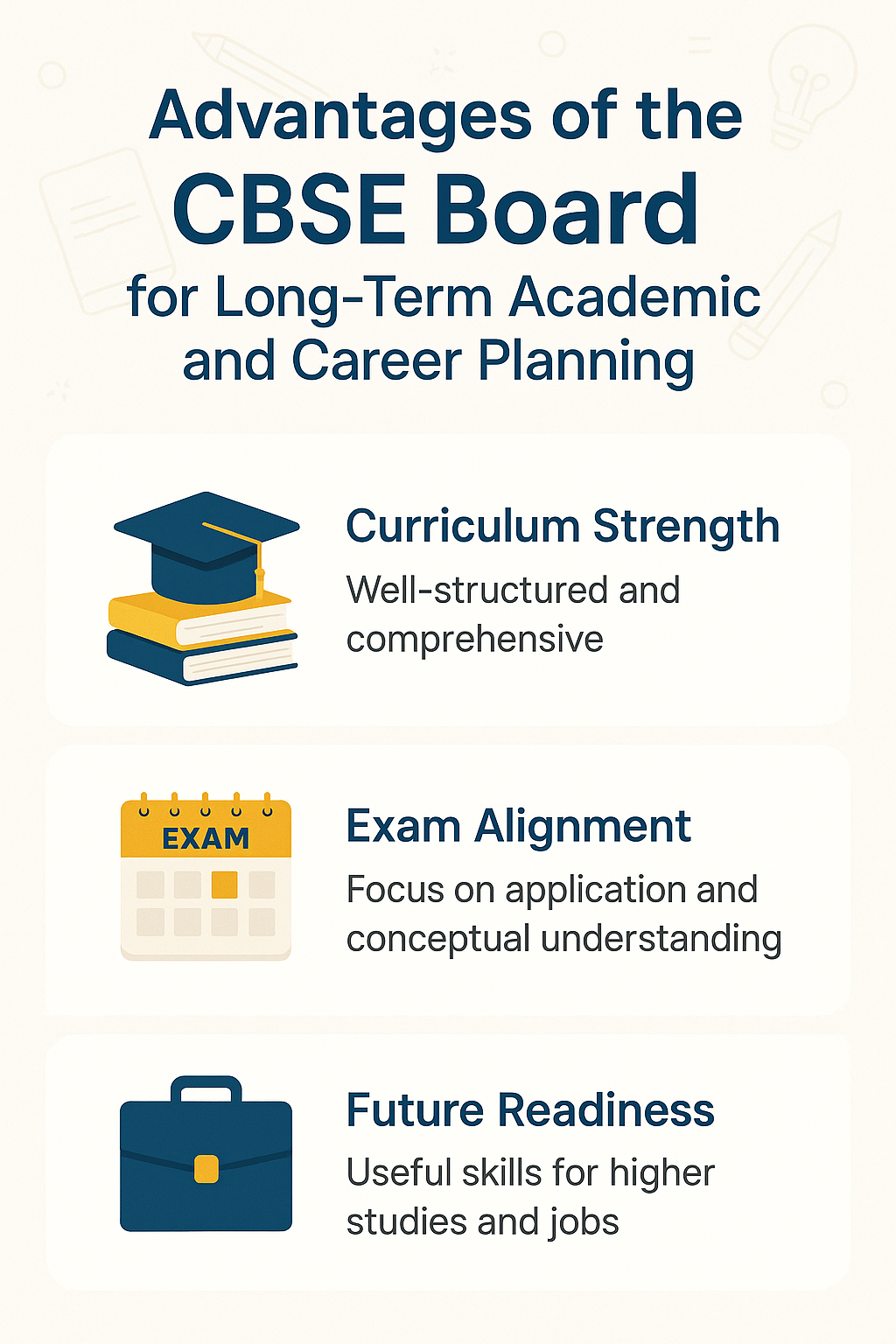
Discover the advantages of the CBSE board for long-term academic and career planning, including curriculum strength,...
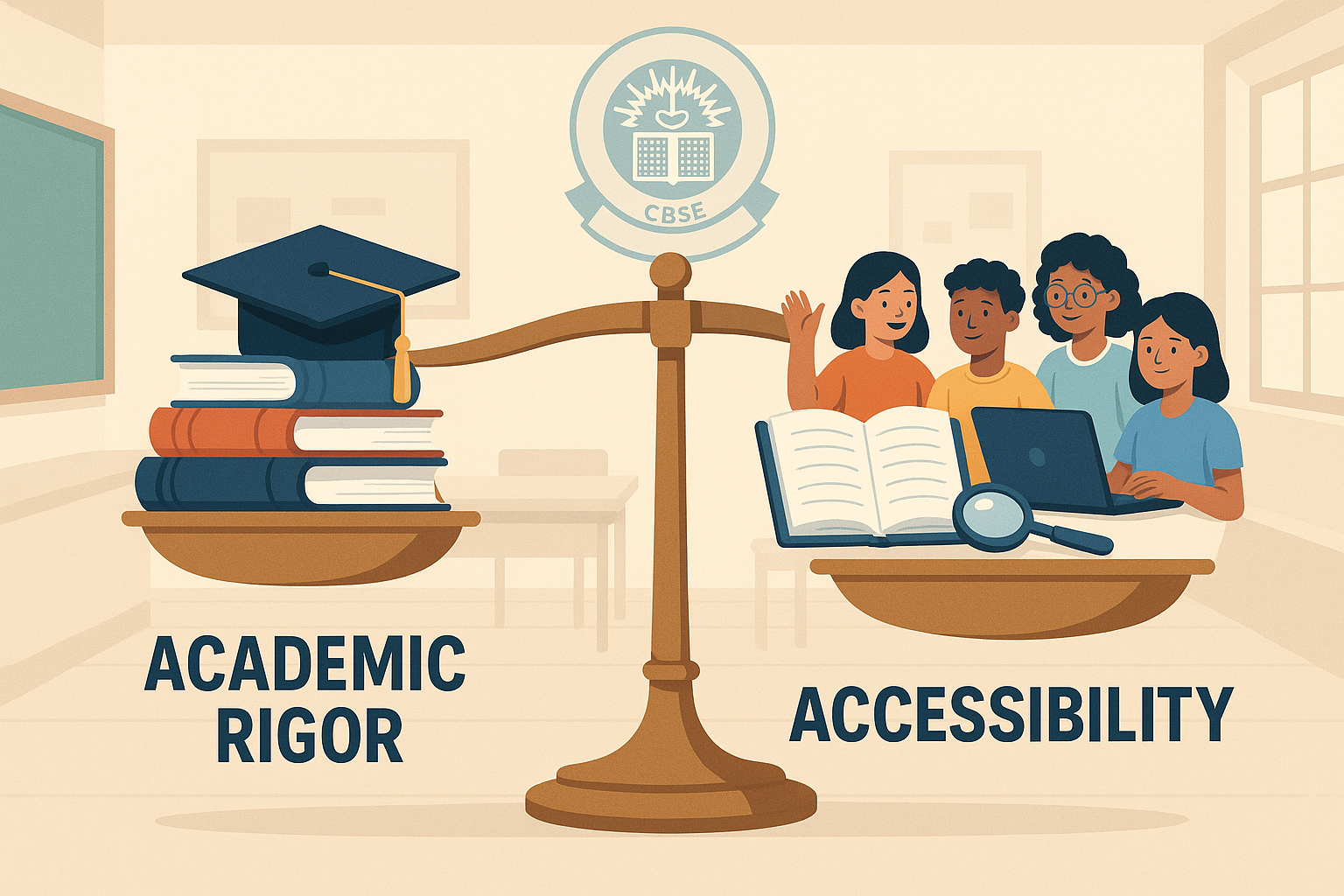
Explore how the CBSE board balances academic rigor and accessibility through its curriculum, syllabus, exams, and...
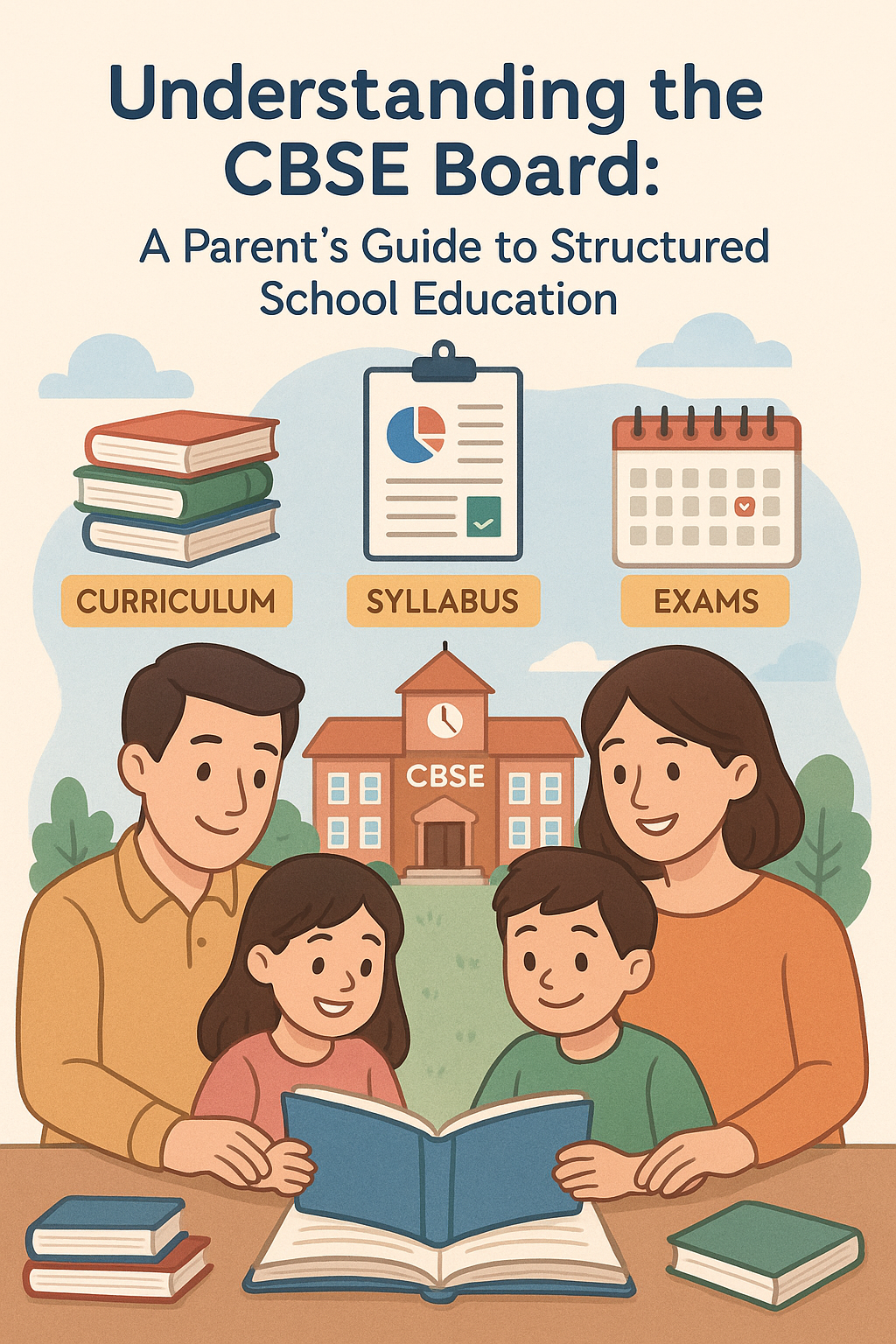
A complete parent’s guide to understanding the CBSE board, its curriculum, syllabus, advantages, exam structure, and...
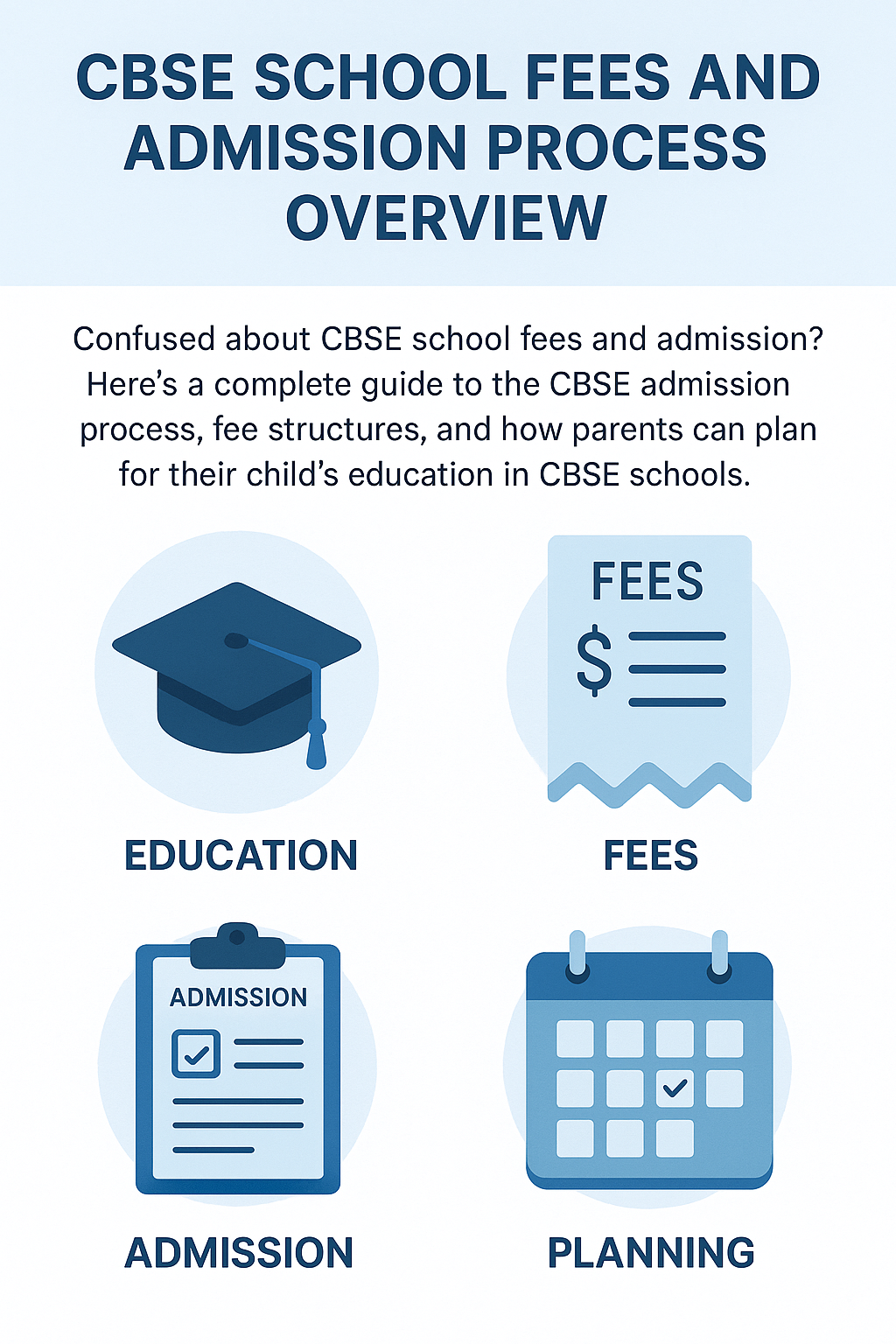
Confused about CBSE school fees and admission? Here’s a complete guide to the CBSE admission process, fee...
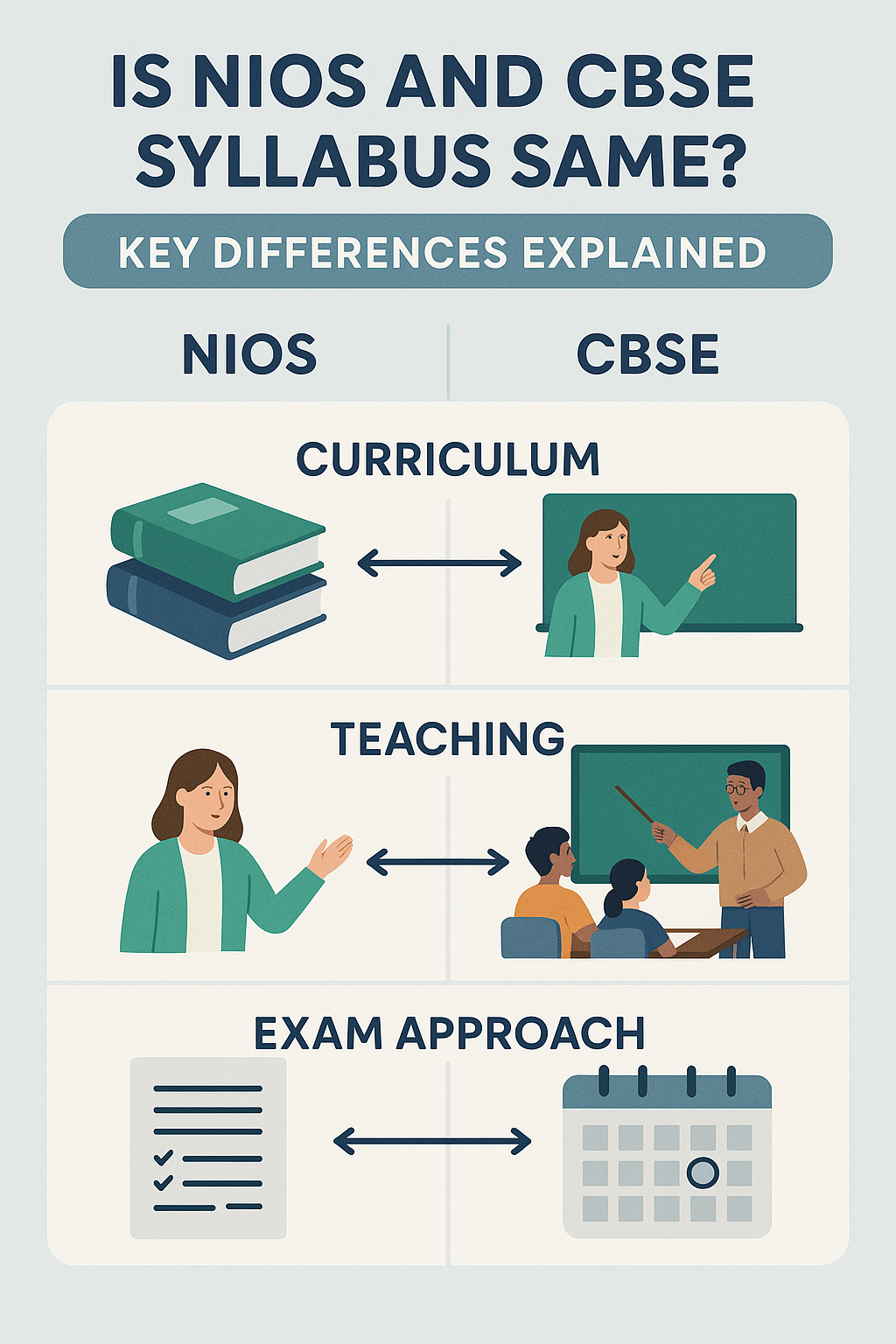
Is NIOS and CBSE syllabus same? Discover the key differences in curriculum, teaching, and exam approach. Learn how...
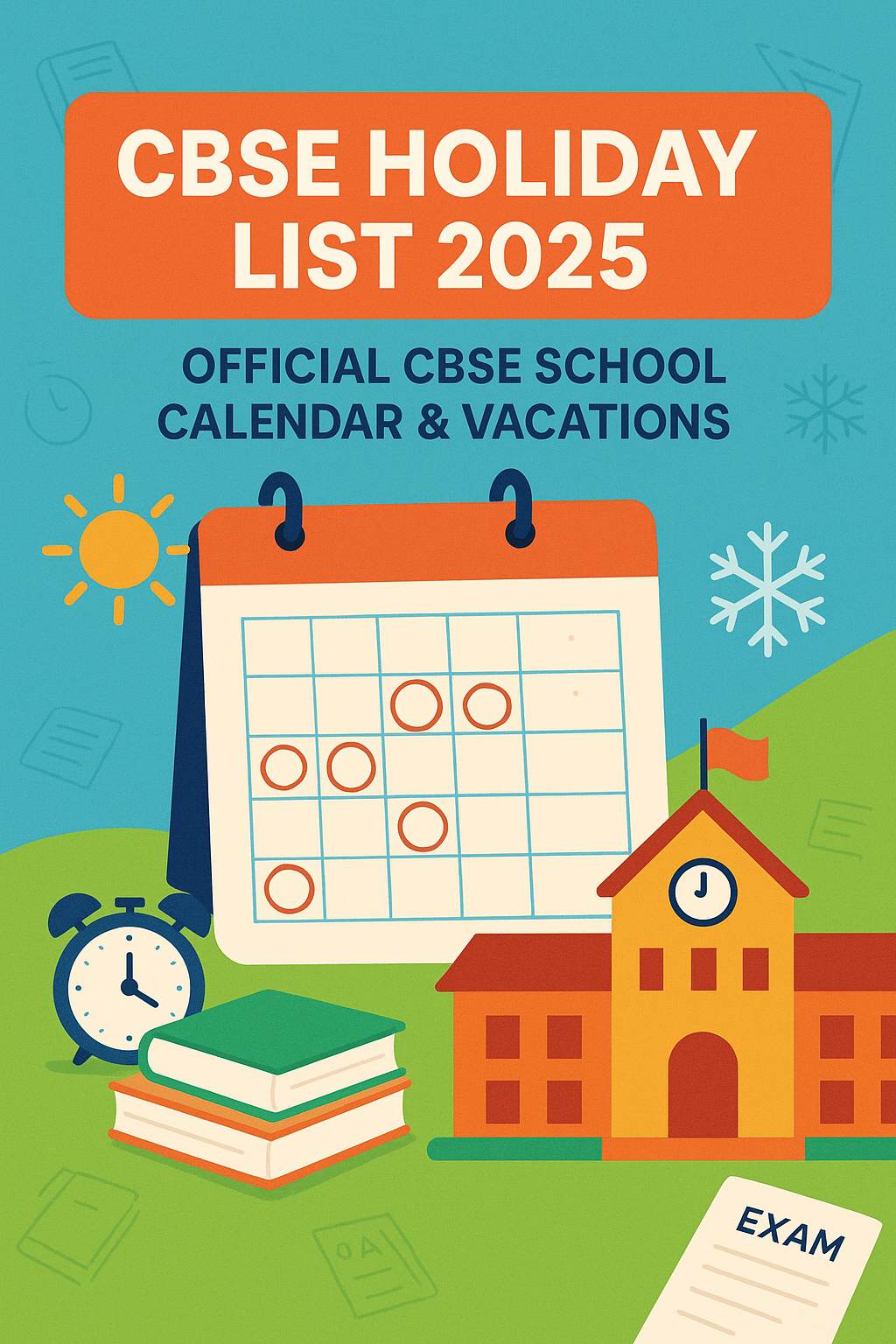
CBSE Holiday List 2025: Explore the official school calendar, national & regional holidays, summer & winter...
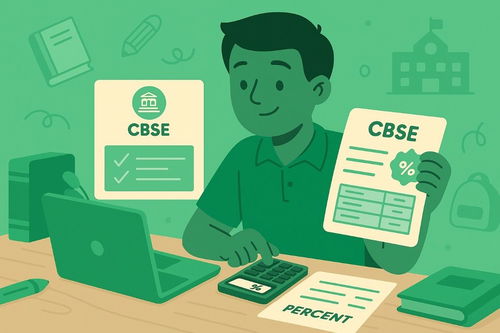
Learn how to calculate your CBSE 12th percentage from your marksheet using the official formula with a simple...
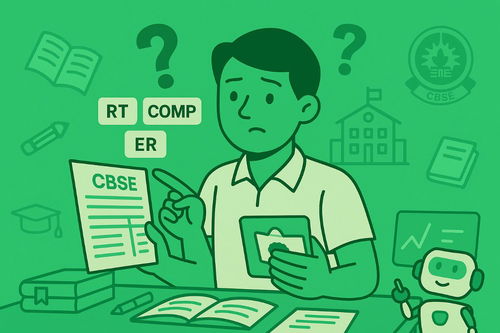
Confused about RT, COMP, and ER on your CBSE marksheet? Learn their meanings, reasons, and what steps you should...
Learn everything about the CTET exam for aspiring CBSE school teachers, including eligibility, syllabus, preparation...

Looking to apply for the CBSE Single Girl Child Scholarship Scheme? Learn eligibility, documents, application steps,...

Discover everything parents and students need to know about the CBSE Class 9 registration process, including...

Learn everything about the CBSE private candidate application process and rules. Understand eligibility,...

Confused about the CBSE answer key? This guide explains how to access it, interpret it, and use it to analyse your...

Confused about how CBSE re-evaluation or re-checking works? This guide explains eligibility, steps, fees, deadlines,...

Discover how to use the CBSE Academics website to access important resources like curriculum, sample papers, and...
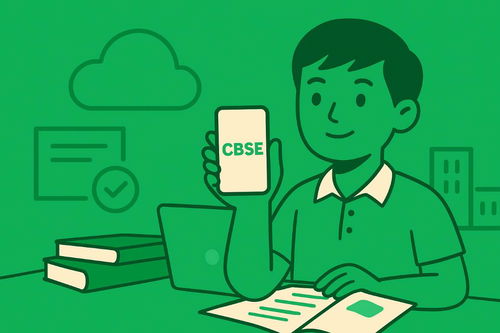
Learn how to easily access your CBSE marksheets and certificates using DigiLocker. This step-by-step guide helps...
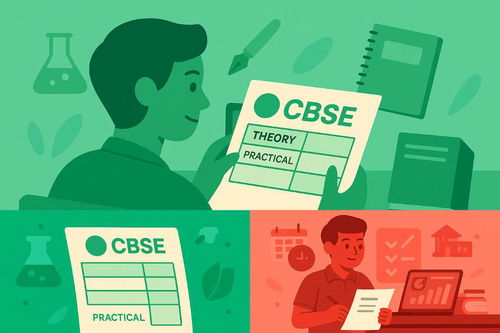
Confused about CBSE passing marks for theory and practical exams? This guide explains the minimum marks needed to...
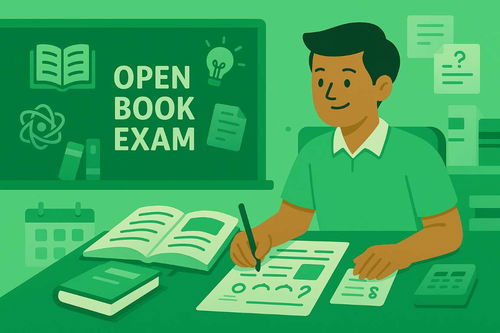
Learn how the CBSE Open Book Exam will be implemented for Class 9 and Class 11 students. Understand the benefits,...
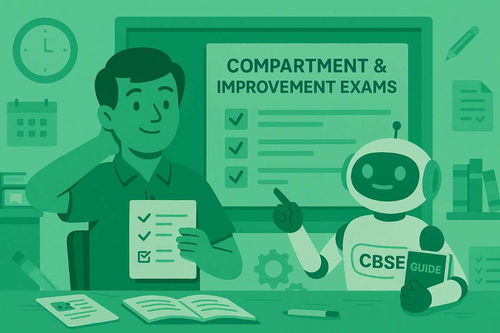
Confused about the CBSE compartment and improvement exam process? This complete guide explains eligibility, how to...
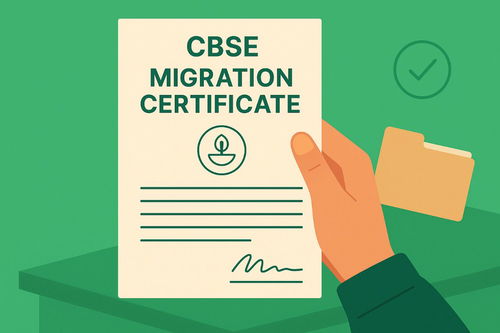
Learn how to obtain your CBSE Migration Certificate after Class 10 or Class 12. This detailed guide walks you...

Confused about your CBSE Admit Card? This easy step-by-step guide explains how to download it, what details to...

Discover what CBSE competency-based questions are and learn how to answer them expertly to you ace your exams.

Boost your Class 10 CBSE board prep with sample papers. Learn how to revise smartly, manage time, and score higher...

Learn how to score high in the CBSE curriculum with a subject-by-subject guide, expert tips, and AllRounder.ai tools...

Compare CBSE vs ICSE to choose the best board for your child. Understand syllabus, teaching style, exam prep, fees, and more.

Understand the latest CBSE marking scheme and question paper pattern. Learn about competency-based questions,...

Want to score above 95% in your CBSE Class 10 boards? Our strategy guide breaks down topper study plans to revision...

Compare CBSE vs ICSE to find the best board for NEET and JEE preparation. Understand syllabus match, exam formats,...

Treat your CBSE Class 12 exams using an athlete's approach to help you train, strategize, and perform your best on exam day.

Get ready for your CBSE Class 10 board exams with our survival kit. Find the official syllabus, a smart study...

Learn how to verify CBSE marksheets, certificates, and results online. Step-by-step guide for students and parents...

Master CBSE with top-rated tools, study planners, and expert online help. Perfect guide for Class 9–12 students...

Learn about CBSE – its full form, history, objectives, and structure. Get insights into CBSE’s role in Indian education.
Resources
-
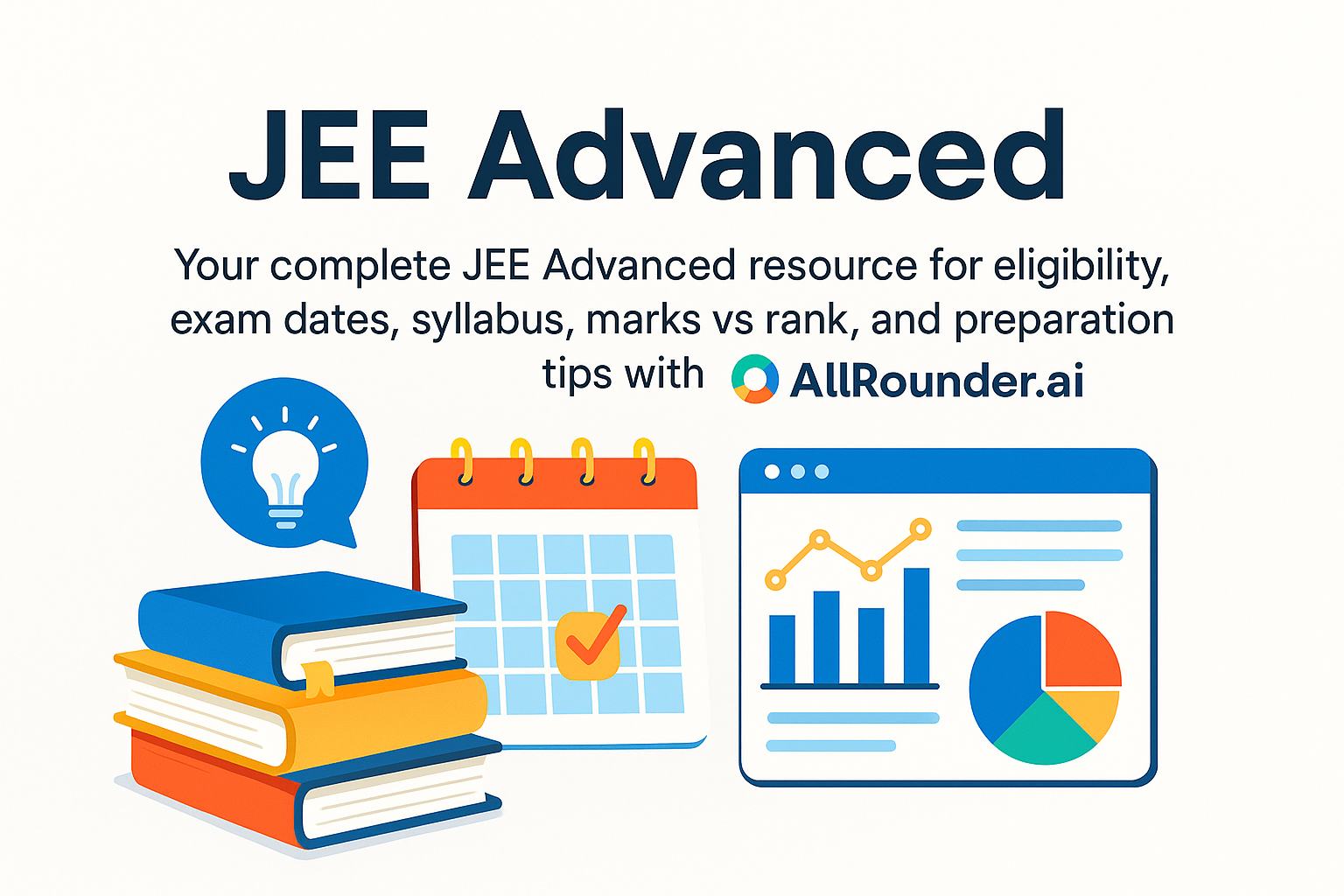
Your complete JEE Advanced resource for eligibility, exam dates, syllabus, marks vs rank, and...
-
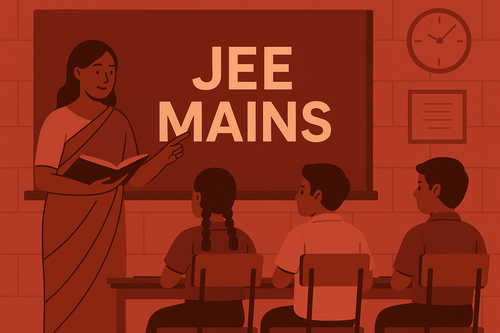
Understand the entire JEE Main process, from application and eligibility rules to the exam...
-

Explore the IB Board – a global curriculum emphasizing holistic, student-centered learning...
-

Learn about CBSE – India’s national school board offering a standardized curriculum, NCERT...
-

Explore everything about the ICSE board – its curriculum, subjects, exam format, and academic...

